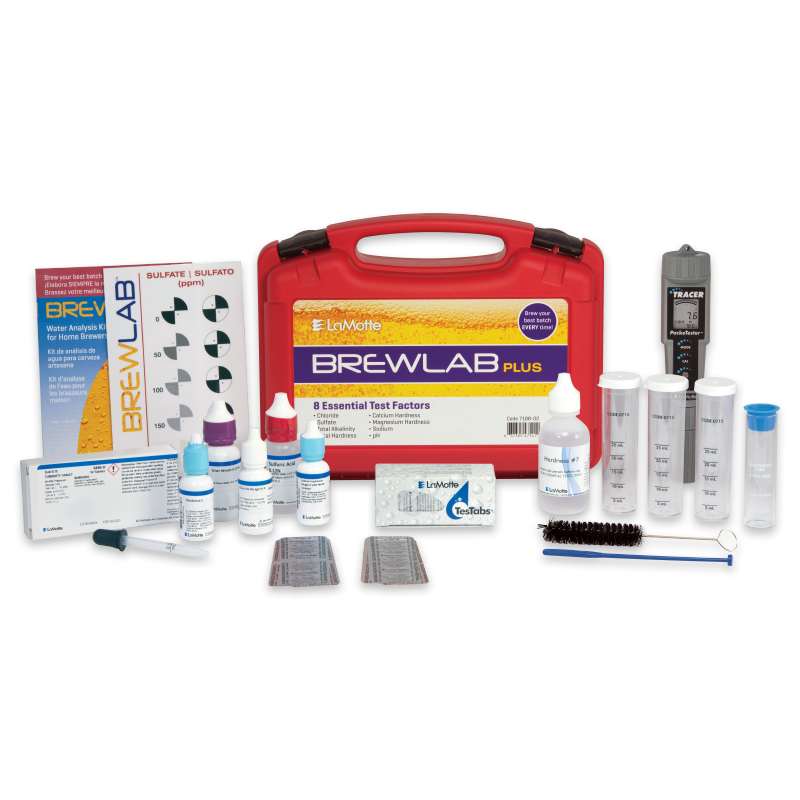$0.00
Description
Better Chemistry… Better Beer!
The BrewLab® Plus Test Kit for home brewers qualifies eight essential test factors. Included is a digital pH meter for monitoring batches from start to finish. Experts agree water conditions affect your final product, so take the mystery out of making great beer.
Chloride:
The chloride ion acts to bring out the sweetness and fullness of the malt flavor, much like table salt does for food. Craft brewers often add calcium chloride to brewing water for Pilsner and other lagers.
Sulphate:
Sulphate and chloride ions in water affect the flavor balance of the beer, from hoppy to malty. The sulphate ion acts to accentuate the hoppiness and dryness of the beer, making it more crisp tasting. Craft brewers often add calcium sulphate to their brewing water for pale ales and IPAs.
Alkalinity:
Alkalinity is generally a problem in brewing water. Alkalinity is the carbonate and bicarbonate content of the water, and acts to raise the pH of the mash and beer. Water hardness can offset the alkalinity, and for that reason both parameters are typically measured as “Calcium Carbonate” in order to determine the net effect.
Hardness:
Water hardness is a brewer’s friend because calcium and magnesium are important ions in many biochemical reactions during mashing and fermentation.
Calcium: Helps prevent enzymes from denaturing and extends their activity in the mash, promoting clarity, flavor, and stability in the finished beer.
Magnesium: In small amounts Mg is an important yeast nutrient. The better the “yeast ferment”, the cleaner the alcohol produced.
Sodium:
Sodium acts in concert with chloride to enhance the sweetness and fullness of the malt, but just as in food and cooking, too much can over salt the beer and result in salty or metallic flavors. Sodium is ubiquitous in water supplies and mineral additions, so it is important for the brewer to know how much the water has before any treatments are planned. Sodium can be easily determined by calculation from the results of the other tests.
pH:
The chemistry of brewing and cooking is complex, and while knowing the mineral content of the water is a critical first step to predicting the impact of the water to the beer, the best way is to measure it, and that is where pH comes into the picture. The mineral content of the water directly affects the pH of the mash, and the pH of the mash affects the entire brewing process—both in process performance and beer flavor. In order to consistently brew great beer, the pH of the mash, wort, and beer should be monitored at every step.
Downloads
Specifications
| Test Factor | Method | Range/Sensitivity |
| Chloride | Drop count method | 1 drop = 10, 25 ppm |
| Sulphate | Turbidimetric method | 0 – 200 ppm |
| Alkalinity | Tablet | 0 – 200 ppm |
| Total hardness | Drop count method | 0 – 200 ppm (and higher) |
| Calcium hardness | Drop count method | 0 – 200 ppm (and higher) |
| Magnesium hardness | Calculation | |
| Sodium | Calculation | |
| pH | Electrometric | 0.0 – 14.0 pH |



